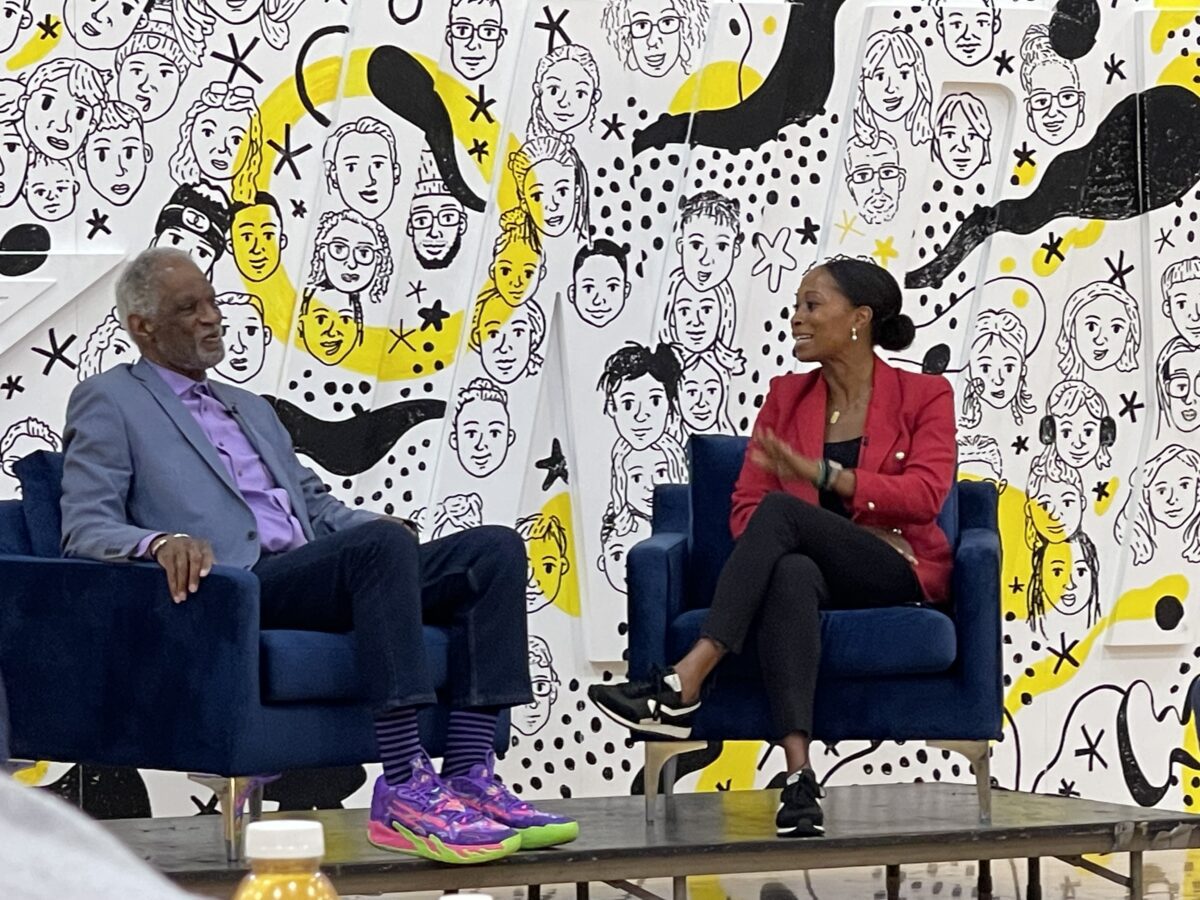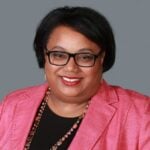
Dr. Howard Fuller is a nationally known thought leader on education reform. Fuller served as the superintendent of Milwaukee Public Schools from 1991-1995. In 2004, along with eight pastors, he founded the Dr. Howard Fuller Collegiate Academy in Milwaukee, Wisconsin. During a recent visit to Indianapolis hosted by RISE Indy, Fuller sat down with the Indianapolis Recorder to share his perspective on the current educational landscape.
This conversation has been edited for length and clarity.
Camike Jones:
You have a storied career in both government and education. You have been traveling the country and spreading the word for many years. What is your mission now?
Howard Fuller:
The reason I’m out here is still the same. I just believe that people like me have a responsibility to continue to fight to change the conditions for our people, particularly our poorest people. So I’m always moved by Doctor Howard Thurman’s book, “Jesus and the Disinherited.” And he talked about the disinherited being those families who wake up every day with their backs against the wall trying to figure out how [they’re] going to survive. The children of families of the disinherited live a really difficult life. I feel that my responsibility is to do whatever I can to change the trajectory of the lives of those children and hopefully their families.
It also gives me an opportunity to remind people that education takes place within the construct of a democracy and I think that this democracy is being attached. So, someone like me who has a platform, I’ve got to make sure I say something about that.
Jones:
Speaking of the of the disinherited, which schools or organizations have effectively helped to alleviate some of those stresses (i.e. food insecurity, housing instability) and who could assist schools in these efforts?
Fuller:
The most effective places, and there’s not a lot of them unfortunately, are places where people are able to try to help children in a holistic way. They recognize that, yes, it’s very important that you learn how to read and write, but whether or not you have food, clothing and shelter is a critical part of how well you’re going to be able to learn.
The problem is these individual situations or small examples don’t translate into larger system change.
The school can be like a center of community life, but you have to bring in all of these other services. You can’t expect teachers and principals to deal with hunger, to deal with lack of housing. What you have to do is use the school as a focal point, but it has to bring in all of these other resources. The fact that we’ve seen examples tells us it could be done. The reason why it’s not done is because I believe, as I said, the political structure writ large doesn’t care about these families. They just don’t care.
Jones:
So often people are pushing this agenda that we need to “save” these kids and help them “get out.” Is there another way to possibly look at that?
Fuller:
Yes, it is to save these kids, for them to come back. I tell the kids at our school that success is not, “I’m going to get out of here.” Success is you’re going to go somewhere to a college and you’re going to gain certain skills. You’re going to be successful if you come back. So, for example, at our school right now, we have five of our alumni that are working in our school. If you develop something that’s worthwhile, people will come back to it. People will want to want to make sure that it survives, that it grows. I push hard on the other part of this, that being successful doesn’t mean you forget who you are or where you came from. It’s the opposite.
That message is being put out there that in order to be successful, you want to get away from here. ‘I want to escape from here. I never want to come back here.’ I push a different narrative.
“One of the ways that we’re going to have to attack our teacher shortage is we have to grow our own teachers.”
One of the ways that we’re going to have to attack our teacher shortage is we have to grow our own teachers. You’ve got to start talking to these kids.
Jones:
What have you seen work as far as attracting and retaining teachers?
Fuller:
Fortunately, there’s still people out there who want to be teachers. We have to get people to see teaching as a mission as opposed to a job because as a job, there are no great selling points, but as a mission, it’s different.
When I talk to our alumni about coming back, it’s about carrying on the mission of our school. Our school provided you with the opportunity to do what you’re now doing. You have a responsibility to these kids who are now in our school. That, to me, is what institution-building looks like, and I believe in order for communities to be successful, you have to build strong institutions.

Jones:
What can colleges and universities do to better prepare teachers?
Fuller:
I never believed that if you went into a school of education that you shouldn’t do practice-teaching until you’re a senior. I thought you should go into a school in your first year. Then you shouldn’t just have teachers work in schools, but also in social agencies. It would give them a greater idea of some of the issues and problems that kids are facing other than in the classroom itself. By being at a Boys and Girls Club, being at a mental health center, you can get a better sense of the broader milieu that your students are negotiating on a regular basis.
Jones:
You spoke about changing the term from “school choice” to “parent choice.” Can you talk about how that wording makes a difference?
Fuller:
“…I never got in this to give schools choice. I got in this to give low-income and working class parents choice.”
Well, I never got in this to give schools choice. I got in this to give low-income and working-class parents choice. The goal for me has always been how you empower parents who don’t have any power. It’s more than semantics. I support parent choice.
Jones:
Do you have any recommendations for parents on how they can feel more empowered?
Fuller:
A parent’s ability to control money is power. If I have the ability to choose, and by my choosing I bring $11,000 to this building, that is power. And if I choose to leave, if that money goes with me, that is power.
I’ve always viewed power in that sense. To me, the greatest power you can have is to affect the flow of resources – money. When you understand that power, you can have a great impact.
Years ago I read a little book called “Exit Voice and Loyalty” by Albert O. Hirschman. He was saying [if you are] in an organization and you have no ability to exit, your voice is diminished. But if you’re in an organization and people know you’ve got the power to leave and when you leave, you take resources with you, that’s when your voices gets louder or gets to be the most powerful. I do think that is the greatest point of power for parents.
Jones:
You were a part of the beginning of the charter school movement. There’s so much division around charter schools versus public schools; how did we get here?
Fuller:
Because it’s about the money. If you are in control of the current order and somebody comes at you, what it does is it changes your power. School districts are essentially politically controlled by the people who work in them. So, if someone comes along and says we should change the structure, then what that means is the power that we had before is no longer going to be there. When people say, ‘How come we can’t all get together?,’ we can’t all get together because we’ve got different interests.
People say we ought to just be able to get together because it’s about the kids. No, it’s not about the kids because if it was about the kids, the kids would be able to read.
When you’re talking about who controls resources, who controls how those resources are going to be distributed, who’s going to make the rules and regulations that govern everything that’s happened, that’s politics. Rather than talking about [how] we need to take the politics out, we’re going to have to exercise a different type of politics.
Contact Editor-in-Chief Camike Jones at 317-762-7850.
Camike Jones is the Editor-in-Chief of the Indianapolis Recorder. Born and raised in Indianapolis, Jones has a lifelong commitment to advocacy and telling stories that represent the community.










